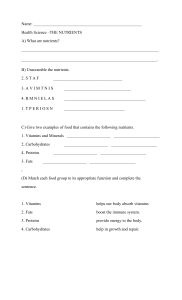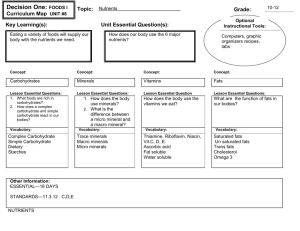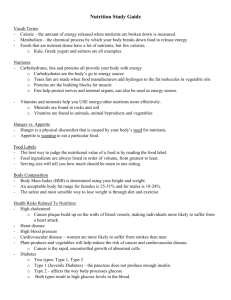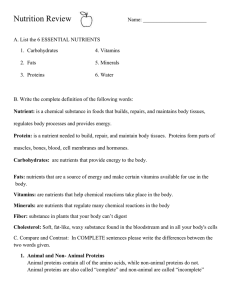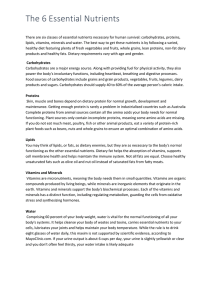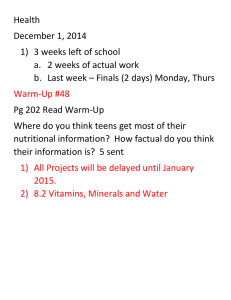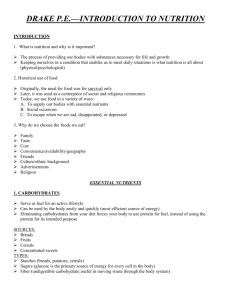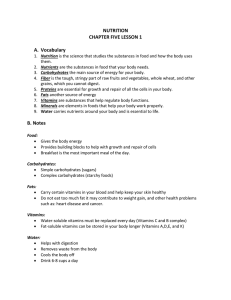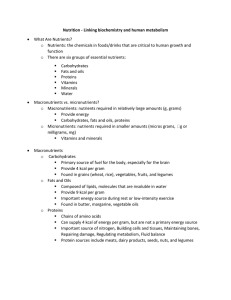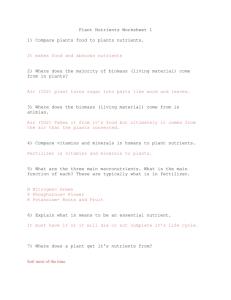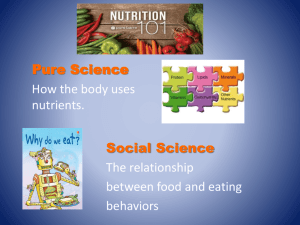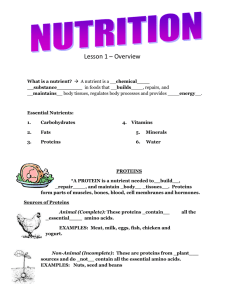Six basic nutrients
advertisement
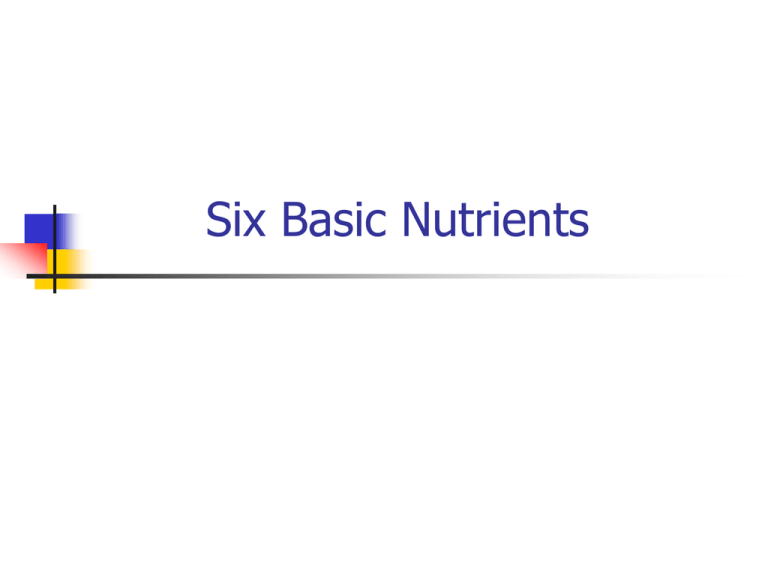
Six Basic Nutrients Six Basic Nutrients Carbohydrates Lipids Proteins Vitamins Mineral Water Food - Getting / Nutrient Use All organisms need food, and all foods contain nutrients. Nutrients are the substances that provide the energy and the materials needed for growth, repair, regulation, and maintenance of the cells. Therefore, food is what the organism consumes, and nutrients are substances within food that are needed by the cells to sustain life. Organisms Require Six Basic Nutrients: 1. Carbohydrates Source - plants Function - major source of energy in the body 2. Lipids (fats) Source - ingestion of animal and plant fats; conversion of carbohydrates into fats Function - storage of energy; component of cell membranes; cushion for delicate organs; carriers for certain vitamins; raw materials for important chemicals 3. Proteins Source - meat, fish, poultry Function - broken down into amino acids which are used in the construction of human proteins. Proteins are essential for the building, repair, and maintenance of cell structure. The predominant part of muscles, nerves, skin, and hair is protein. Things such as enzymes and antibodies are specialized proteins. 4. Water Source - ingestion Function - a variety of functions including its role as a solvent 5. Vitamins Source - the various vitamins are each ingested from a variety of foods Function - various metabolic functions including enzymatic activity 6. Minerals Source - the various minerals are each ingested from a variety of foods Function - a large variety of bodily functions Carbohydrates, lipids, and proteins require digestion. Vitamins, water, and minerals do not. Research Assignment Construct a chart displaying the specific sources and functions of each of the following vitamins and minerals: Vitamins - A, B1, B2, Niacin, B12, C, D, E, and K Minerals - calcium, phosphorous, sodium, chlorine, potassium, magnesium, iodine, iron
